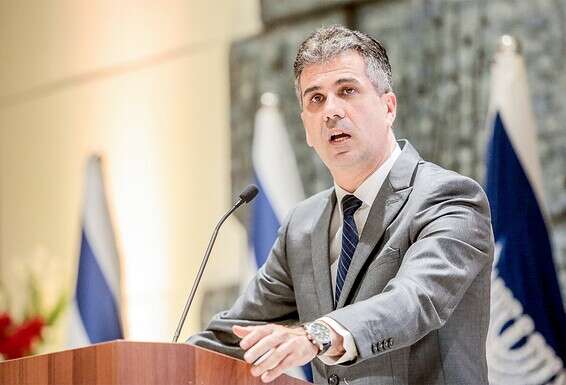Ministry of Economy Program for Opening Gates: Heat Testing for Visitors, Controlling Number of Customers and Provisional Supply of Disinfectants • Minister Cohen: "To open the malls according to the plan we submitted"
On the way to opening salaries? // Photo: Joshua Joseph
Returning? The Ministry of Economy and Industry has submitted to the government a document that came to Israel today, stating that Minister Eli Cohen recommends returning the closed malls to activity immediately.
The program, under the heading "Purple Sign for Malls," lists the conditions for opening them, which include: Creating control and control of the number of customers in the mall; Proactive provision of antiseptics and personal protective equipment; Heat test for visitors; Enforcement of masking pen; Flexing store hours, so malls are open for longer to reduce visitor load; Responsible for the management and control of the Mall Island for mall management and more.
In the document, the Ministry of Economy and Industry proposes to change the restrictions on the presence of customers in the store by customer to 10 square meters (net), and not according to the number of funds. Such a change will allow large movement of customers in the malls. In the same way, just like the Jewish sector, the self-employed In the Arab sector, the effects of the Corona crisis were severely affected.
According to data from the Ministry of Economy, the Small and Medium Business, which operates the Aviation Branches across the country, from the beginning of the crisis, thousands of business owners have contacted Aviation Branches in the Arab sector for information on the changing guidelines. The number of referrals from business owners in the sector doubled compared to the same period last year. Hundreds of businesses from the sector have applied for escort for funding from the State Guarantee Fund.
Zaid Zayed, CEO and owner of the fashion complex at T&E, a women's fashion complex in Shefar'am, considered the largest in Israel, says that "Our days of repair are full of customers coming from all over the country, because these are well-known brands from around the world at relatively low prices. We opened last Monday and no more than five customers came in, and they also came to take dresses from the sewing workshop. Customers do not know whether to have a wedding or not, whether to make a small or large wedding and whether it is possible to make an appointment already in June. The confusion is no different between ultra-Orthodox, religious, secular and Arab customers - the questions are about summer and fall. I have lost millions of shekels so far, because I have invested a lot in construction and inventory based on the clients I had before. "
Zaid goes on to say that "the state needs to know that as long as weddings are not allowed in normal numbers, the industry will continue to decline, and that includes banqueting halls, hair salons and beauty and dressing areas. We now have an area of 2,000 square meters, and these days the size is a disadvantage, the biggest casualties More. I'm really surprised by the insensitivity of the leaders to the self-employed. How can you run a business from March without working and not receiving any support? They all have good intentions, but they are cut off. Money has to be poured in because this can take months, and in the meantime there will be more expenses. As mentioned, I did not receive a dime from the state. I am a controlling employee who works for 20 hours a day in the company. "
Zayed does not see himself as different from the state of the state. "I know it's not just about our sector or the periphery in particular. All the traders all over the country have been affected, and none of them have received help yet."
Need help
Ashraf Subhi Mahajna, a business owner for toys and baby products in Shfaram, also complains about the lack of assistance to self-employed and business owners. He said, "I am a store owner for 12 years. We closed the store for a month and reopened this week on Sunday, given the provision that street stores can be opened. During this period we lost NIS 700,000, including redemptions, rents and additional expenses. We applied for a loan from the State Fund and I was told "I don't fit the criteria. In business, money should be flowing at the same time. Anyone who is not strong and does not have money will not last without the state's help."
According to Mahajna, "There has been some recovery this week, but the government has restricted activity in cities that have a Muslim majority by 6 p.m., due to Ramadan, and so it will be all month."
Majahana has another store shelf business. "It's a business that's been going crazy, because during this time, chains only sell food," he says.
Mahajana, like Ziad and most businesses in the country, is currently busy deploying and deferring payments, alongside raising loans that will hamper their conduct in the months and possibly years to come. VAT and tax payments have also been deferred, but none of these liabilities have disappeared.

